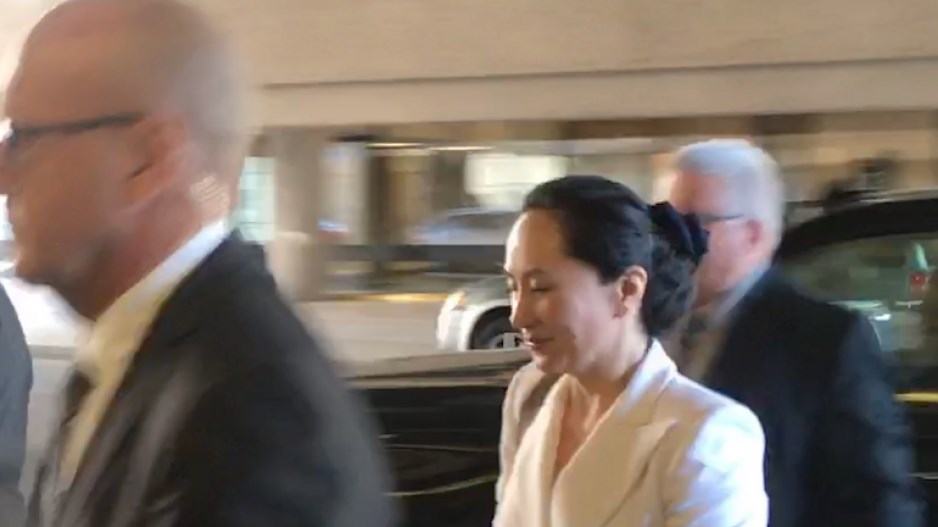The Meng Wanzhou extradition hearings continues today as the defence is scheduled to conclude its argument that the U.S. violated international law in charging the Huawei Technologies CFO.
Defence lawyer Gib van Ert contends that the United States overreached in charging Meng with defrauding HSBC, since it involves a Chinese citizen and a British bank meeting in Hong Kong. That, van Ert said, means that the United States do not have jurisdiction to police Meng’s conducts in this case.
Van Ert did point out cases where another country’s law can be applied outside its territory- but it involves exceptions such as having a citizen of said country as a party to the charges or if the state’s “fundamental interest” is threatened.
Neither is the case here, van Ert argued.
Associate Chief Justice Heather Holmes said that - looking at the expert academic evidence brought forward by van Ert - she is uncertain if the topic of the U.S. possibly violating international law is a choice for the courts to make. Holmes noted that it may be a decision for the executive branch of government - namely, the federal minister of Justice - to make instead.
Van Ert, however, said it is the responsibility of the court to not condone misconduct by the United States in this case; and by approving extradition, Canada would also be violating US laws, he noted.
The Crown is arguing that the case has several significant links to the U.S., including the fact that the HSBC has operations in the United States and that the money secured by Meng for Huawei flowed through the American financial system (as U.S. dollar transactions). Officials further contend that the misinformation allegedly given by Meng (about Huawei’s activities in Iran) were used at meetings in the U.S. in risk management assessments.
Van Ert argued that neither point opened Meng to being under U.S. jurisdiction is this matter, however, saying HSBC arrived at the conclusion of continuing banking with Huawei at a London meeting prior to Meng’s 2013 meeting in Hong Kong with the bank.
“If Ms. Meng did make misrepresentations at that meeting, it may be in breach of the laws of Hong Kong ,” van Ert said. “Does it mean that the United States had the right to enforce its laws? If so, it means the U.S. has the power to enforce its laws all over the world... Our submission is there’s nothing here to support an extension of jurisdiction.”
Van Ert also said the lack of U.S. jurisdiction in this matter meant it is impossible for authorities to make its case of fraud - based on the fact that HSBC may have suffered reputational loss due to its support of Huawei while the latter violated U.S. sanctions against Iran.
“How does the decline of reputation of a British bank matter to the U.S? We say it doesn’t,” van Ert said. “None of the clear links to the U.S. [in this case] suffices in international law or Canadians common law...
“Some international law cases are difficult. This one is not,” he concluded.
The hearings continue through mid-April.




